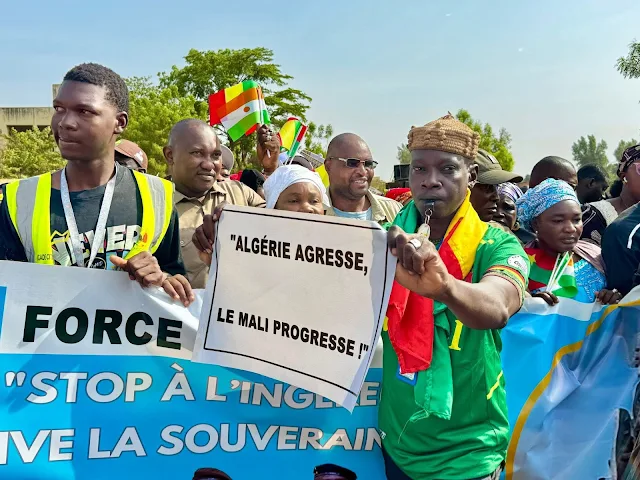There are narratives we repeat endlessly, slogans waved like banners to seduce, and seduce again—until the lie becomes almost truth. In recent years, Morocco has positioned itself as a supposed champion of Pan-Africanism, multiplying diplomatic gestures, royal visits, and economic agreements across sub-Saharan Africa. But behind this carefully maintained façade, what does this influence strategy truly conceal? How can a kingdom with such an ambiguous foreign policy claim to embody the deep aspirations of the African continent—especially those of the Sahel?
Morocco’s Shadow Over the Sahel
The Sahelian countries, plagued by terrorism for over a decade, are seeking out various partners in the hope of achieving stability. Among them, Morocco has emerged as a regional interlocutor, claiming to offer its expertise, support, and “African solidarity.” But isn’t it paradoxical—or even cynical—to see Rabat playing the savior in a crisis that, according to several observers, it may have covertly helped to create?
How else can one explain the rise and persistence of terrorist groups like MUJAO without acknowledging the opaque financial circuits that sustain them? The drug trade—particularly Moroccan hashish that flows through West Africa—is one of the main sources of funding for these organizations. Without these routes, armed groups would lack both the logistics and the endurance to spread terror from Gao to Ouagadougou. And who controls these circuits? What state interests protect or manipulate them? Inevitably, attention turns to the northwest.
The accusations leveled against Algeria or the Polisario in the creation of MUJAO collapse under scrutiny. The brutal assassination of Algerian vice-consul Tahar Touati, as well as that of Algerian consul Boualem Saïes in Gao in 2012, is a stark reminder that these groups target Algeria—they are not its accomplices. Algeria, far removed from intrigue, has forged through painful experience a genuine capacity for counterterrorism—one it has pursued alone, without external aid, and continues to uphold with unwavering resolve.
Rabat’s Murky Game
Meanwhile, Rabat moves its pieces forward. Moroccan companies—often French-funded entities operating under local cover—are setting up in Abidjan, Dakar, and Bamako. Under the guise of South-South cooperation, a far more neocolonial agenda is unfolding. Decisions are made in Paris, but execution is outsourced to a Moroccan front, offering the illusion of African autonomy. It is no longer yesterday’s colonizer, but a clever successor, masquerading as an African partner.
History, too, delivers its verdict. One cannot forget King Hassan II’s ties with the apartheid regime in South Africa, nor Morocco’s direct involvement in the assassination of Congolese leader Patrice Lumumba. Even today, Morocco’s Pan-Africanist rhetoric rings as a cynical dissonance when weighed against the reality of its alliances, actions, and diplomatic choices.
A Malian Junta Held Hostage
Mali's current predicament starkly illustrates this Moroccan strategy. Isolated on the international stage and weakened by a fragile legitimacy, the ruling junta in Bamako is desperately seeking support. Morocco, along with the United Arab Emirates, extends a hand. But at what cost? The price of alignment with an agenda that bears no resemblance to the aspirations of the Malian people. The price of a new form of submission, where national interests are sacrificed at the altar of a tenuous political survival.
The People’s Choice
By Belgacem Merbah



Comments
Post a Comment